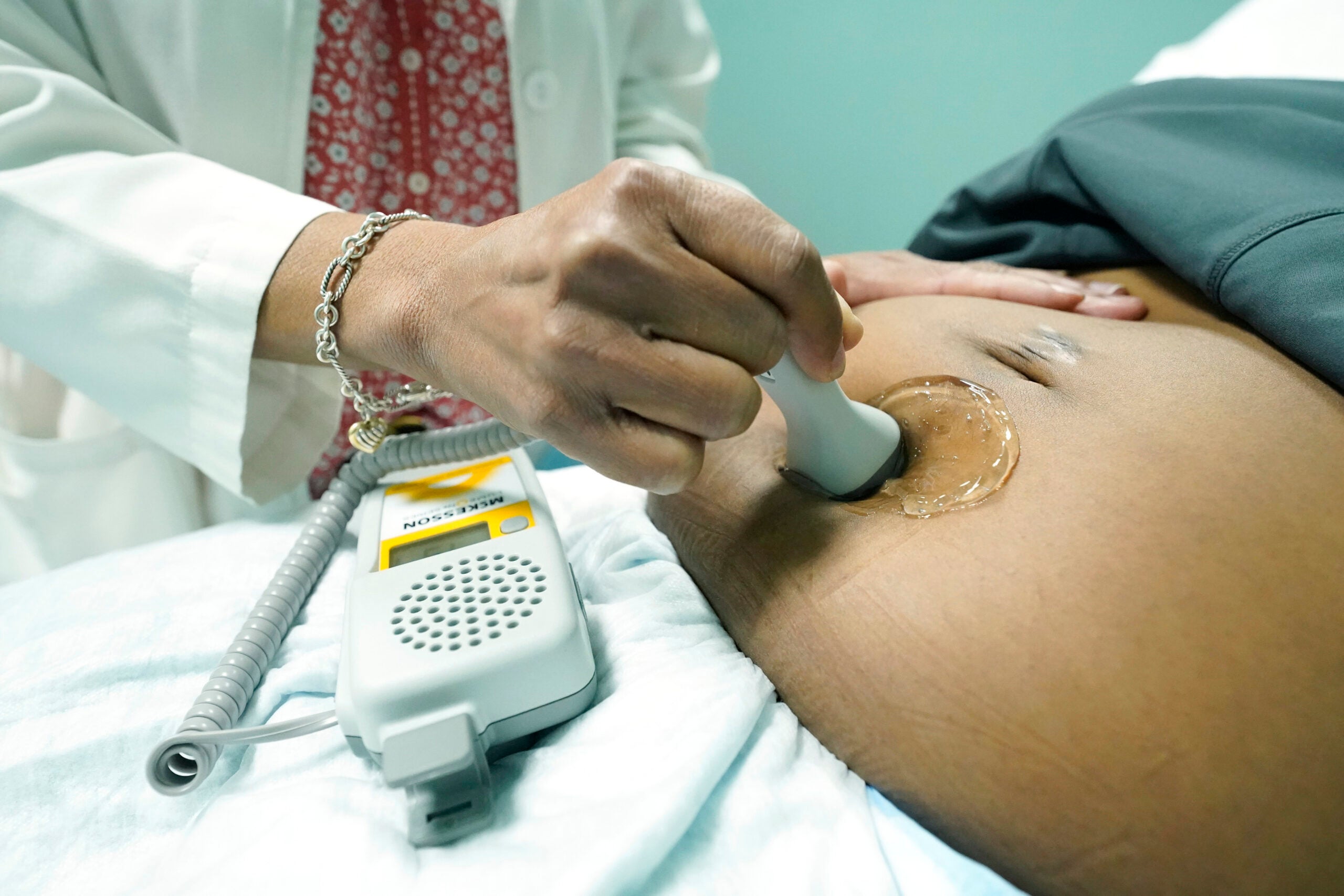Wisconsin’s Republican-led Senate has approved legislation that would expand child tax breaks to include fetuses.
The bill, which now heads to Wisconsin’s Republican controlled-Assembly, would increase the state’s individual income tax exemption for a dependent from $700 to $1,000. And it would allow someone to claim a fetus as a dependent once a fetal heartbeat is detected. That exemption would not apply to pregnancies that end in abortion.
Republican backers say their goal is helping families offset the costs of having children, starting during pregnancy.
News with a little more humanity
WPR’s “Wisconsin Today” newsletter keeps you connected to the state you love without feeling overwhelmed. No paywall. No agenda. No corporate filter.
“Recognizing a child in the womb as a viable person demonstrates our support of all children, born and unborn,” state Rep. Karen Hurd, R-Fall Creek, said during a public hearing this fall.
But Democrats said the proposal would do little to help Wisconsin families. Instead, they accused Republicans of furthering an “anti-choice agenda” despite widespread support for abortion rights among Wisconsinites.
“It is part of a national strategy to chip away at abortion rights and ultimately establish legal personhood for embryos and fetuses so that embryos and fetuses have rights under the law and, of course, the pregnant woman has fewer,” Sen. Kelda Roys, D-Madison, said on the Senate floor on Tuesday.
Under a state law that recently went into effect in Georgia, a parent can now claim a fetus with a detectable heartbeat as a dependent for tax purposes. In at least half a dozen other states, lawmakers have introduced state tax bills that would allow fetuses to be claimed as dependents, according to a review by Tax Policy Center.
In Wisconsin, Sen. Mary Felzkowski of Tomahawk was the lone Republican senator to vote against passage of the bill. A representative of her office said Felzkowski was not available for comment Tuesday afternoon about the reason behind her vote.
A spokesperson for Democratic Gov. Tony Evers did not respond Tuesday to a question about whether the governor would veto the bill, should it get to his desk. It would take a supermajority in both chambers of the Legislature to override his veto, and Republicans are short of that threshold.
The increase in the amount of Wisconsin’s tax exemption for dependents, combined with the expanded eligibility for fetuses, would lead to a $20 million reduction in state tax revenue beginning in fiscal year 2024, according to an estimate from Wiscosnin’s Department of Revnue. It would also cost the department about $94,000 in annual administrative costs to review claims associated with the bill, according to the estimate.
To claim Wisconsin’s exemption, the bill would require a taxpayer to submit an attestation from a qualified professional who performed an ultrasound, confirming that a “fetal heartbeat” was detected, the legislation says. Typically, providers can detect cardiac activity from an embryo starting at about six weeks of pregnancy.
The expanded tax credits will help families struggling with inflation and other financial pressures, said Rep. Patrick Snyder, R-Schofield, who introduced an identical version of the legislation in Wisconsin’s Assembly.
“Preparing for a birth of a child is very exciting and stressful time,” Snyder told the Senate’s Committee on Licensing, Constitution and Federalism in September. “You might find out that you have to start saving. You have to think of diapers and highchairs.”
Providers across Wisconsin stopped providing elective abortions in June 2022, after the U.S. Supreme Court overturned nationwide constitutional protections under Roe v. Wade.
But Planned Parenthood of Wisconsin resumed those services in September at one clinic in Milwaukee and another in Madison, citing a July ruling in an ongoing lawsuit over the legality of abortions under a 19th-century state law.
Wisconsin Public Radio, © Copyright 2026, Board of Regents of the University of Wisconsin System and Wisconsin Educational Communications Board.





